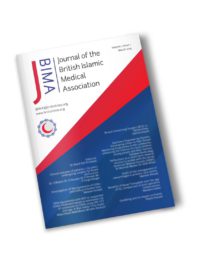
Introduction
Artificial Intelligence (AI) is revolutionising the healthcare landscape where Machine Learning (ML), particularly the subfield of Deep Learning (DL), is driving advancements in vital sectors such as medical imaging, drug discovery, and even personalised medicine. Nevertheless, the deployment of such cutting- edge technologies necessitates a principled approach, ensuring ethical considerations are at the forefront of AI development.
AI’s Potential in Healthcare
Focusing intently, regulators standardise technologies whilst orchestrating medical adherence. Navigating anomalies precociously, practitioners recognise, observe, assess, comprehend, handle, evaluate, diagnose. As these regulatory frameworks evolve to ensure safety and efficacy, the practical applications of artificial intelligence in healthcare are rapidly expanding. Computer vision technologies, enabled by Convolutional Neural Networks (CNNs), are capable of analysing medical scans with superhuman accuracy enabling early disease detection, potentially saving lives and making radiologist’s Mondays a breeze. The field of Reinforcement Learning (RL) is being explored in robotic surgery to attain heightened precision and reduce instances of human error by employing learn-through- imitation methods in a simulated setting. Moreover, advancements in the field of Natural Language Processing (NLP) are enabling chatbots to answer patient questions, manage appointments, and even offer preliminary symptom analysis.
Challenges and Considerations
Sought advantages of AI in healthcare are highly promising, with the potential to revolutionise patient care. Guardian of impartiality, the imperative is to ensure that training data does not embed algorithmic biases. To guarantee equitable outcomes, selecting diverse datasets becomes essential. Protect against biases, the application of debiasing algorithms are necessary in forming a critical barrier to safeguard the integrity and fairness of AI-driven outcomes. Reputation of AI technologies depends on these measures, ensuring benefits are realised equitably across all demographics.
Despite its immense potential, AI in healthcare presents challenges. The complex nature of deep learning models can make their decision-making process opaque, raising concerns about transparency and accountability. To address this, Explainable AI (XAI) techniques are crucial to help healthcare professionals understand the rationale underpinnings of AI recommendations [1].
Emerging Frontiers
Recent developments in Federated Learning enable AI model training on distributed datasets without compromising privacy, facilitating a collaborative approach that keeps patient data secure on local devices with only model updates being shared across networks, effectively alleviating concerns relating to data security [2]. Generative Adversarial Networks (GANs) present another exciting frontier where researchers are exploring their potential to synthesise artificial medical imagery for training purposes. This could address data scarcity issues in specific medical fields, leading to more robust and general is able AI models that can be effectively applied across a wider range of patients [3].
The latest in medical chatbots
Large Language Models (LLMs) that leverage sophisticated Transformer technologies, such as ChatGPT and Gemini, are pioneering advancements in digital interaction across various sectors. Specialised medical AI assistants, such as Qwen and Florence, are tailoring this technological transformation to healthcare. Standing at the forefront of this domain, Google’s Med- PaLM-2 demonstrates the ability to accurately address complex medical queries, as evidenced by its impressive 86.5% score on the ‘MultiMedQA’ benchmark – a test set that encompasses medical exams, research, and patient cases. The ongoing evaluation of Med-PaLM-2 underlines its potential to transform patient informatics and clinical dialogue [4].
Shared Responsibility : A Multishake holder approach
Ethical implementation necessitates collaboration where healthcare professionals need to carefully assess AI tools to ensure they augment, not supplant, human expertise. Developers have a moral obligation to prioritise transparency and minimise bias through rigorous testing methodologies. Policymakers are advised to establish robust regulations for AI in healthcare, balancing innovation with patient safety and privacy where patients are informed about AI limitations hence are empowered to make informed decisions about their care.
Conclusion
Open dialogue and collaboration among stakeholders are crucial in navigating ethical considerations and ensuring AI serves as a force for good in healthcare. While concerns about job displacement and misuse remain, focusing on human-AI collaboration is central. AI’s potential to transform medicine gives healthcare professionals the bandwidth to focus on more complex cases and deepen patient trust and engagement. By prioritising patient safety, data privacy and fairness, AI can become a powerful tool for enhancing healthcare delivery. The future holds immense potential for advancements in diagnostics, personalised treatments, and ultimately, contributing to a healthier populace.
Acknowledgements
Reviewed by Dr Miguel Hernandez Silveira – IEEE, PhD, BEng, MIET [email protected]
References
- Linardatos P, Papastefanopoulos V, Kotsiantis S. Explainable AI: A Review of Machine Learning Interpretability Methods. Entropy. 2021. https://doi.org/10.3390/e23010018
- Sheller MJ, Edwards B, Reina GA, et al. Federated learning in medicine: facilitating multi-institutional collaborations without sharing patient data. Sci Rep. 2020. https://doi.org/10.1038/s41598- 020-69250-1
- Yi X, Walia E, Babyn P. Generative adversarial network in medical imaging: A review. Med Image Anal. 2019. https://doi.org/10.1016/j.media.2019.101552
- Singhal K, Tu T, Gottweis J, Sayres R, Wulczyn E, Hou L, et al. Towards Expert-Level Medical Question Answering with Large Language Models. Mslm:2638. 2023. https://doi.org/10.48550/arXiv.2305.09617

